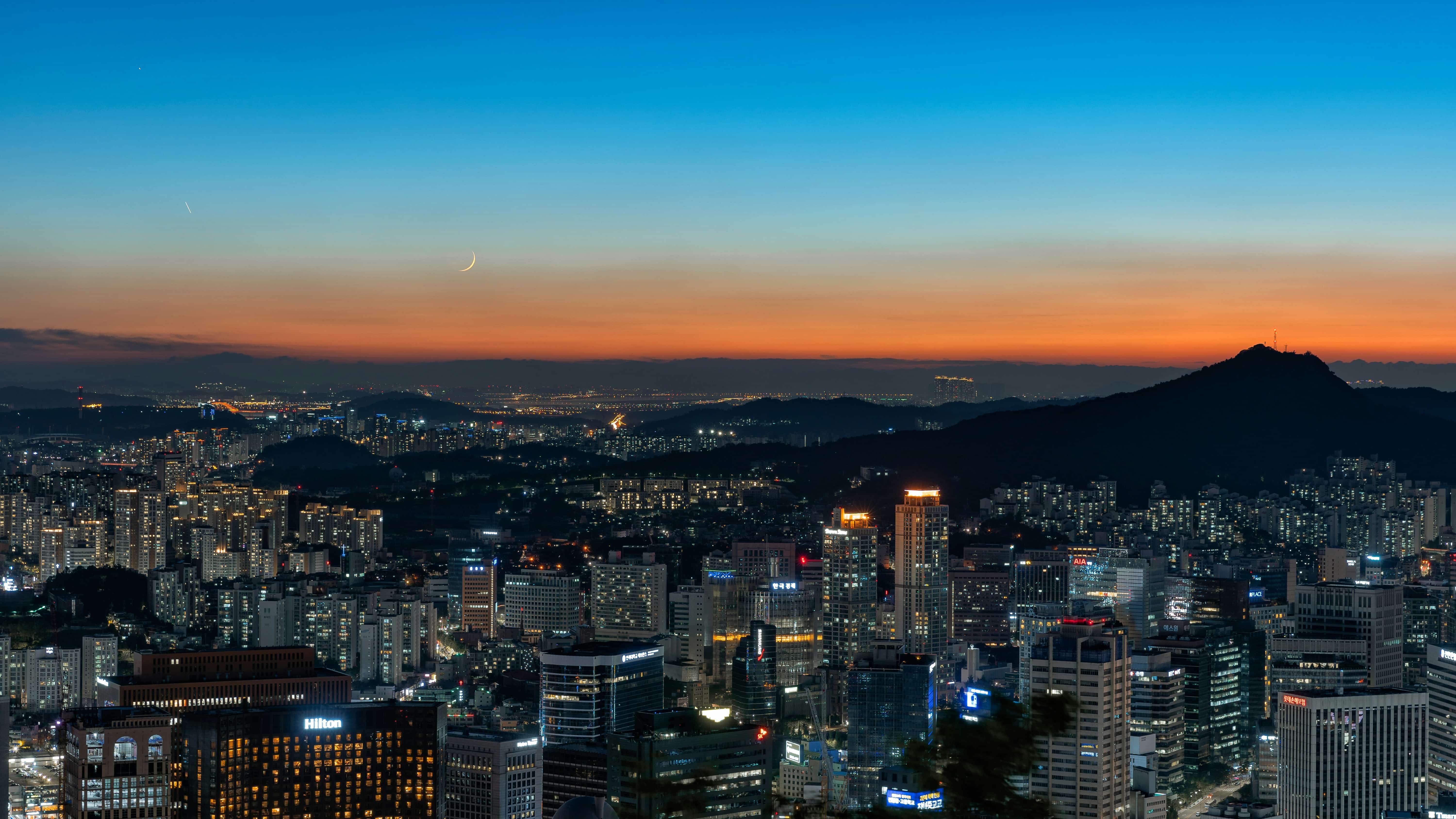
Cost of Living in Seoul
2025-04-01
Seoul is a bustling metropolis and the capital of South Korea, offering international professionals a positive work environment, especially in tech, finance, and manufacturing. Although the cost of living is high—particularly for housing and international education—Seoul’s dynamic job market, high-quality healthcare, and excellent public services make it an appealing choice for expats. The city blends modern technology with rich traditions, providing a comfortable living experience.
Introduction to Seoul
Seoul is the capital of South Korea, located in the northwest part of the country near the border with North Korea. It has four distinct seasons, with hot, humid summers and cold, dry winters. Temperatures in summer can reach up to 35°C (95°F), while in winter, they can drop to -10°C (14°F).
Economy and Employment
Seoul is the economic hub of South Korea and one of the largest financial centers in Asia. Key industries include technology, finance, manufacturing, and trade. Major employers are global giants like Samsung, Hyundai, LG, and SK Group. However, South Korea faces economic challenges such as aging demographics and rising housing prices. The city’s economy is dynamic, with high competition for jobs, particularly in tech and finance.
Immigration Requirements
Expats need a valid work permit to work in South Korea. The process involves obtaining sponsorship from an employer. Visas for highly skilled workers, such as IT professionals and teachers, are more easily obtainable. However, bureaucracy can be slow, and obtaining a long-term residence permit may take time.
Job Market and Opportunities
The job market in Seoul is fast-paced, with opportunities mainly in technology, teaching, and engineering. South Korea is known for its tech industry, and there is a strong demand for IT specialists. Salary levels are competitive, particularly in sectors like tech and finance. However, work culture is intense, with long hours and a hierarchical structure. Career advancement is performance-based, but building strong relationships within the company is crucial.
Cost of Living
Seoul is an expensive city to live in, especially in terms of housing and transportation. Compared to many cities worldwide, the cost of living in Seoul ranks high:
- Alcohol and Tobacco: Expensive, especially foreign brands.
- Clothing: Prices vary widely but are generally comparable to other major cities.
- Communication: Internet and mobile services are affordable and fast.
- Education: International schools can be costly, ranging from $20,000 to $30,000 annually.
- Furniture and Appliances: Mid-range pricing, with both affordable and premium options.
- Groceries: Imported goods are expensive, while local products are reasonably priced.
- Healthcare: High-quality services but private care is expensive without insurance.
- Housing: Among the biggest expenses; rent for a central apartment can reach over $2,000 per month.
- Personal Care: Services like salons and gyms are reasonably priced.
- Recreation and Culture: Cinema tickets and cultural events are comparable to global averages.
- Restaurants, Meals Out, and Hotels: Eating out can vary, with luxury dining being expensive, but local street food is affordable.
- Transport: Affordable public transport, but owning a car is costly due to taxes and parking fees.
Quality of Life
Seoul offers a good quality of life. Public services are efficient, the city is clean, and the crime rate is low. However, work-life balance can be difficult to maintain due to long work hours.
Pros and Cons
Pros: High-quality healthcare, excellent public transport, and strong job opportunities, particularly in tech. Cons: High cost of living, competitive job market, and demanding work culture.
Culture and Language
Korean is the official language, though English is widely spoken in business and by younger generations. South Koreans are generally polite and friendly toward foreigners, especially in professional settings. The culture emphasizes respect, hierarchy, and collectivism. Customs like bowing and removing shoes indoors are common.
Healthcare
South Korea has a well-developed healthcare system with modern hospitals and clinics. Expats are required to have health insurance, and medical services are of high quality, with many doctors trained abroad. However, private healthcare can be expensive, particularly for specialized treatments.
Safety and Security
Seoul is a safe city with low crime rates. Political stability is strong, and emergency services are efficient. However, tensions with North Korea occasionally rise, which is something to be aware of. Earthquakes and other natural disasters are rare.
Residential Areas for Expats
Popular areas for expats include Itaewon, Gangnam, and Hannam-dong. These neighborhoods offer a mix of international amenities, good schools, and access to public transport.
Education
There are many international schools in Seoul offering curricula like the International Baccalaureate and American programs. Admission can be competitive, and fees are high. The local education system is rigorous and highly competitive.
Social and Recreational Life
Seoul has a lively social scene with plenty of bars, restaurants, clubs, and festivals. There are also numerous parks, hiking trails, and sports facilities. The city hosts many events for expats, including community groups, sports clubs, and language exchanges.
Transportation
Seoul’s public transport system is efficient, clean, and affordable. The subway network is extensive, covering most of the city. Buses and taxis are also plentiful. Traffic congestion can be an issue, so many residents rely on public transport. Incheon International Airport provides excellent connectivity to the rest of Asia and the world.
Unique Aspects of Seoul
Seoul is its seamless blend of tradition and modernity. Ancient palaces coexist with futuristic skyscrapers, while traditional markets sit alongside high-end shopping malls. Seoul is also a leader in technology, with one of the fastest internet speeds in the world.
Overall Cost of Living
Seoul is expensive, particularly for housing and international education. However, the availability of public services, high salaries, and strong job opportunities can help offset these costs.
Use Xpatulator’s Cost of Living Calculators and Tools for informed decision-making about the cost of living in Seoul, South Korea, and the salary or allowance required to maintain your current standard of living.